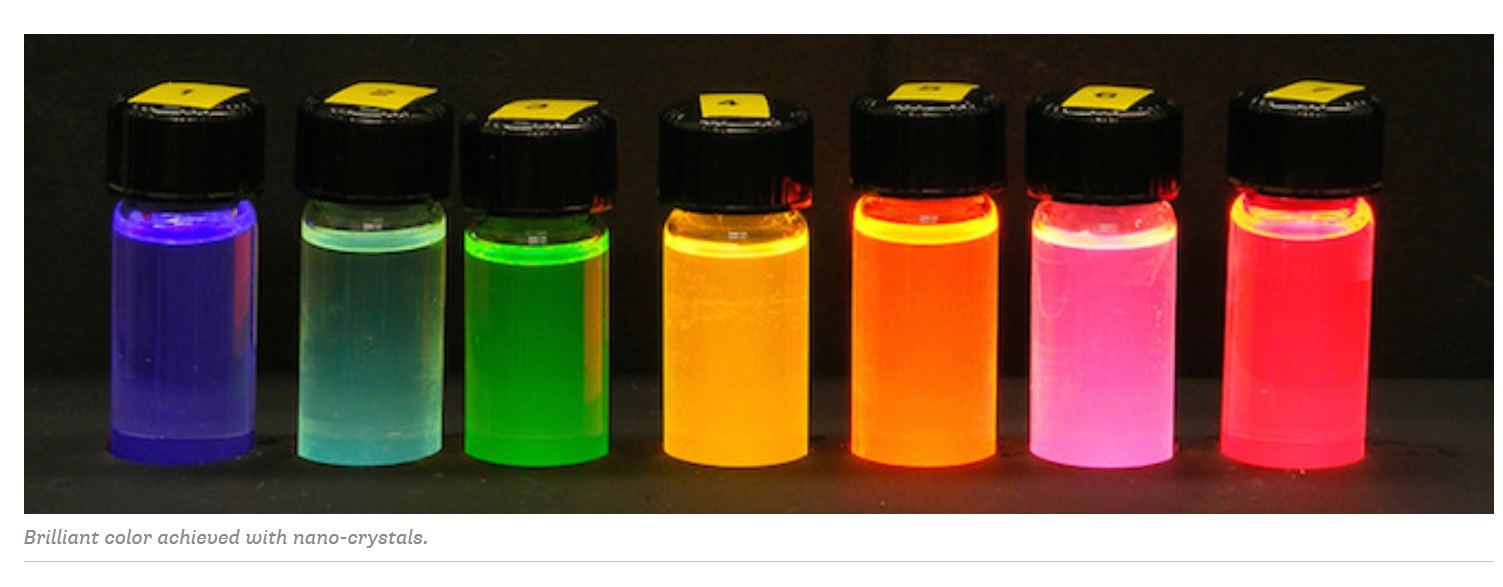Merck to Fully Acquire Qlight Nanotech, a Spinoff Company of Hebrew University's Yissum
https://en.huji.ac.il/en/article/27100
2015:
An Outstanding Leadership Award was presented to Dr. Karl-Ludwig Kley, Chairman of the Executive Board & CEO of Merck, for his exemplary vision and commitment to innovation for the benefit of mankind. The award was presented by Prof. Menahem Ben-Sasson, president of the Hebrew University of Jerusalem, and Yaacov Michlin, CEO of Yissum, the Hebrew University's technology transfer company.
On June 29, Merck, a leading company for innovative and top-quality high-tech products in healthcare, life science and performance materials, announced that it is acquiring the remaining stake in Qlight Nanotech Ltd., Jerusalem, Israel, and will hold 100% of the company.
Qlight Nanotech is a spin-off of Yissum, the technology transfer company of the Hebrew University of Jerusalem.
"The combination of breakthrough innovation from the lab of Prof. Banin with Merck, a global leader in liquid crystal technologies, created this success of Qlight that was the first start up acting inside the Safra Campus in Jerusalem employing directly around 20 employees,” said Yaacov Michlin, CEO of Yissum and Chairman of the Board of Qlight Nanotech. “This serves as great example for the goal of Yissum to convert academic innovation into products and career opportunities in Jerusalem and Israel. This acquisition is an important step in the excellent collaboration between Merck and Qlight that will lead to products in the flat panel displays market.”...
Prof. Uri Banin, the scientific founder of Qlight Nanotech,said: "I am excited about this important step for the future of the company. There are clear synergies for Qlight’s quantum materials with Merck’s dominant position in the display market. This is a landmark opportunity for Qlight Nanotech – solidifying its activity in Jerusalem, while benefitting from close interaction with our research group, and the Hebrew University Center for Nanoscience and Nanotechnology. The research at the Hebrew university will also greatly benefit from such close interactions and ties with Merck”...
Qlight Nanotech was founded in 2009 and since the beginning worked closely with Merck in a joint research program supported by the Israeli Office of the Chief Scientist of the Israeli Ministry of Economy as part of its Multinational Company Cooperation Program. Merck has invested into Qlight Nanotech in two steps in 2012 and 2013 already before. Qlight Nanotech will remain the quantum materials research hub for the Performance Materials business sector of Merck.
By exploiting new technologies Merck aims to strengthen its leadership in liquid crystal display materials and growing presence in OLED materials. Qlight Nanotech’s novel nanocrystals help to improve color impression and energy efficiency of modern displays.
The acquisition was announced during the Israel-Germany Innovation Day in Tel Aviv, which was hosted and visited by Israel's Minister of Economy, Arie Deri, and the German Ministry of Economy.
https://finder.startupnationcentral.org ... t-nanotech
Qlight Nanotech developed semiconductor nano-crystals that enable light conversion from UV and blue wavelengths to any other wavelength in the visible range. When excited by light, nano-crystals can offer high energy efficiency and cost savings for solid state lighting (LED) systems, flat panel displays, and other optical applications.
Qlight's solutions were designed to integrate with existing system materials, devices, and processes, offering cost reduction opportunities and optimized product qualities for a range of applications.
As part of Merck, Qlight hosts an innovation lab at the campus of Hebrew University of Jerusalem.
Founder: Uri Banin
HUJI, Faculty of Science, The Center for Nanoscience and Nanotechnology at Quantum Nano Materials for Photo-Catalytic Applications
Related Companies:
Heavily Doped Semiconductor Nanocrystal Quantum Dots https://finder.startupnationcentral.org ... antum-dots
Yissum, Technology Transfer Company of the Hebrew University of Jerusalem
Method enables tight control of electronic properties
Highlights
-Intentionally inserting impurity atoms into a crystal, or doping, is the basis for the widespread application of semiconductors in electronic and electro-optic components.
-An additional way to tune the properties of semiconductor structures is by controlling their size and dimensionality via quantum confinement effects.
-Colloidal semiconductor nanocrystals are a family of materials that have size-dependent optical and electronic properties, and lend themselves to the simple manufacture of nanocrystal-based light-emitting diodes, solar cells, and transistor devices.
-However, doping has proven elusive for strongly confined colloidal semiconductor nanocrystals.
Our innovation
-Simple, room-temperature method for doping semiconductor nanocrystals with metal impurities. Exquisite control of the electronic properties, including the band gap and Fermi energy achieved through changing the dopant type and concentration.
Key Features
-First demonstration of electronic doping of quantum confined semiconductor nanocrystals under heavily doped regime -Provided understanding of the effects of heavy doping in semiconductor nanocrystals -Simple doping method in solution at room temperature using metal dopant atoms developed
Development Milestones
-Project in research phase, moving towards demonstrating a device based on doped nanocrystals The Opportunity -The ability to closely control the synthesis of doped nanocrystals, together with a better understanding of heavily-doped colloidal Quantum Dots opens potential avenues for solar cells, thin-film transistors, and diverse electronic and optoelectronic devices.
STAGE OF DEVELOPMENT
Ongoing Research Patent application filed in United States

